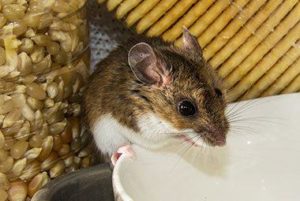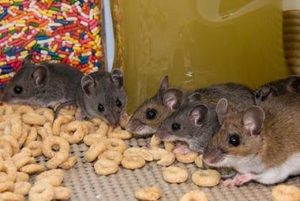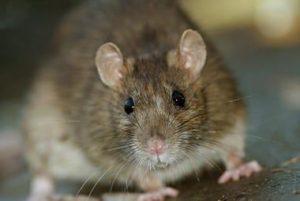Recently, we’ve been hearing talk on the news about Hantavirus Pulmonary Syndrome (HPS). This disease has been attracting the attention of pest control professionals because it is generally spread by a common rodent, the deer mouse. So, let’s go through some Q and A about HPS and how it intersects with the pest control industry.
Q: What is Hantavirus Pulmonary Syndrome?
A: HPS is a dangerous disease first identified in the U.S. in 1993 when a series of respiratory-related deaths occurred in the western part of the country. After intensive research, the Center for Disease Control (CDC) found that the deaths could be attributed to the Hantavirus. When people are exposed to the Hantavirus, they can (but may not) develop HPS.
Q: How could I be exposed to HPS?
A: Hantavirus exposure is overwhelmingly attributed to interaction with rodents, particularly the deer mouse. Please note that not every species of rodent caries the Hantavirus, and most of the rodents in East Tennessee are not known to be carriers of this virus. Knoxville and all of East Tennessee are on the very outskirts of the deer mouse’s habitat. Cotton rats, which are natives to the South East, can also carry the Hantavirus, but they are found to be infected less frequently than the deer mouse.
Q: What kind of activities could put me at risk for getting HPS from a deer mouse?
A: The Hantavirus is spread through contact with urine, feces, and saliva from an infected deer mouse or cotton rat. You should be on your guard if you are spending time in infrequently-used buildings that may have rodent activity, if you are doing yard work near wood piles or other habitats that could harbor mice, or if you are hiking or camping in areas that are attractive to mice (like campgrounds or trail shelters). If you are going to be working in an area with known mouse activity (like a shed or a crawl space), wear a surgical mask while you work. This is an airborne virus, so you are most likely to be exposed to it while breathing in mouse-infested areas. This virus is not transferable from human to human, meaning that if you are exposed to mouse waste, you cannot pass on the virus to friends or family members by touching them or kissing them.
Q: What are the symptoms of HPS?
A: Generally speaking, the virus begins to express itself less than a month after exposure to infected deer mice. All victims of HPS complain of extreme fatigue, fever, and deep muscle cramps in the thighs, abs, and back. Most patients also experience some kind of abdominal problems (nausea, vomiting, or diarrhea) as well as dizziness and headaches. These are the early symptoms that are leading to the respiratory problems. Eventually, the lungs will start to fill up with fluid, and the patient will experience tightness in the chest, difficulty breathing, and a suffocating feeling.
Q: What should I do if I think I have HPS?
A: Go to the doctor! The problem is that early HPS symptoms mimic flu symptoms, so people often wait too long to get help. If you start to get flu-like symptoms after being exposed to rodent habitats, go to the doctor immediately and describe your rodent interaction. About 40% of HPS cases are fatal, which means you shouldn’t mess around with this issue. Although there is no direct cure for HPS, a hospital will be able to provide respiratory help and can potentially alleviate some of the dangers associated with the symptoms of HPS while the virus runs its course.
Q: What does all of this have to do with pest control?
A: Are you ready to hear me sound like a broken record again? The CDC is very clear that the best way to handle HPS is to avoid it entirely. You do this by not allowing mice and rats the chance to build up habitats in your home or outbuildings. Caulk up those small openings. Use weather stripping to seal large openings. Put down snap traps (in safe, inaccessible locations) so that you’ll know immediately if mice try to invade your home. The fall and winter are the most likely times to see mice near your home, and this is particularly relevant since we are experiencing such an early fall here in East Tennessee.
Q: Where can I get help with rodent control?
A: You can get help from Russell’s Pest Control, of course! Give us a call if you want year-round rodent control, and we’ll help you in any way we can. You can also contact us online.
Hantavirus And The Deer Mouse in Knoxville TN
Serving East Tennessee since 1971


